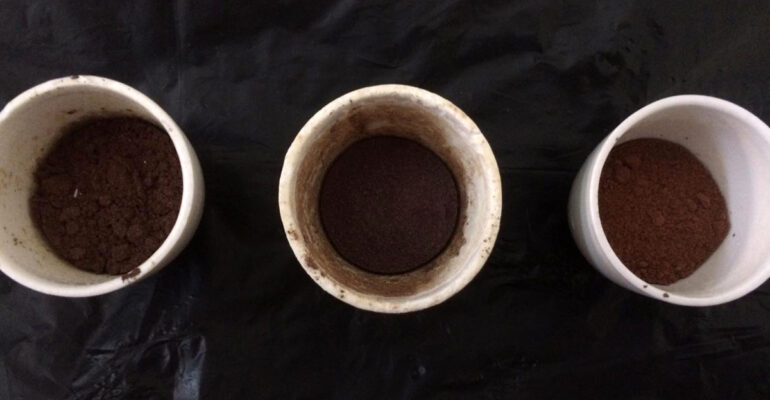IPB University Students Develop A Logam, Absorber of Heavy Metal Waste in Polluted Water

IPB University students successfully developed a product that can absorb heavy metal waste from tuna bones. This innovation to absorb heavy metal waste named A Logam (A Metal). Through the 2019 Student Creativity Program (PKM), three students from the Department of Physics, Faculty of Mathematics and Natural Sciences (FMIPA), Avia Sefrianty Hidayat, Muhammad Farhan, and Zulfa Aulia Rahma made hydroxyapatite mineral particles. Avia and the team developed this innovation with guidance from Dr. Akhiruddin Maddu, lecturer of the Department of Physics, FMIPA, IPB University.
"A Logam contains hydroxyapatite mineral particles that were made from processing tuna bones waste. A Logam can reduce heavy metal content in polluted water when dipped into thewater. There is an adsorption process in which heavy metal ions are "sucked" onto the surface of hydroxyapatite mineral particles. We combine this mineral with magnetite synthesized from iron sand which can be obtained easily on many Indonesian beaches. The objective is to increase the absorption rate and facilitate the process of removing adsorption particles (adsorbents) after they are implemented," said Avia as the head of the team.
A Logam has good effectiveness in adsorbing heavy metal like lead (Pb). Besides that, considering the cost and availability of raw materials, A Logam composite potentially can take more dissolved metal per unit cost. This allows lower production cost and more environmentally friendly implementation since it uses local waste and material, which are tuna bones waste and iron sand.
According to Avia, the idea of developing this innovation came from the experience of two team members who had been indirectly affected by heavy metal pollution. When eating seafood, they experienced digestive problems which apparently could occur due to the consumption of seafood such as shellfish contaminated by heavy metals.
"The increasing problem of heavy metal pollution will certainly threaten the fishing industry through decreasing the feasibility of consuming a variety of marine food products, such as fish and shellfish, which are caught offshore near major cities. The use of fish bones, which is a waste of the fishing industry, to overcome problems in the industry itself offers sustainability that is more environmentally friendly," she added.


